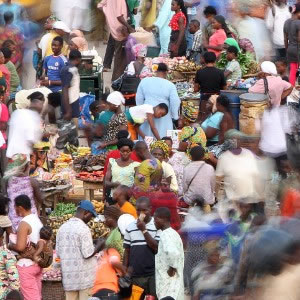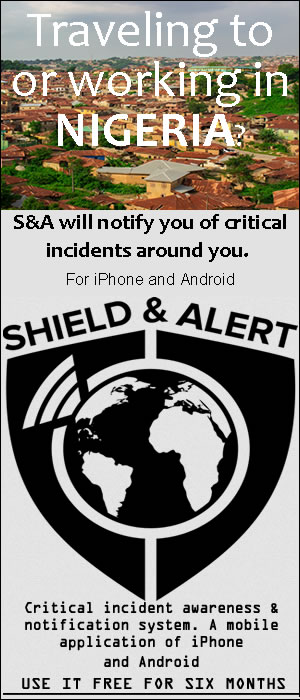Nigeria’s Woro massacre in early February 2026 was a large‑scale attack on two mainly Muslim farming communities that left Muslim and Christian civilians dead, including adults and children, community leaders, and people living on the economic margins. Local leaders...
MEA RISK’s SHIELD & ALERT notifications: Access requires installing Shield & Alert mobile application. More info on S&A here or click here to signup and install
Nigeria Adjusts Airstrike Strategy Under Expanded U.S. Security Cooperation
Nigeria is adjusting how it conducts air operations against armed groups as part of an updated security arrangement with the United States. Under the new framework, Nigerian fighter aircraft will increasingly rely on U.S. reconnaissance and intelligence-gathering...
Nigeria: Questions Mount Over U.S. Airstrikes in Northern Nigeria
By Leslie Varenne, MondAfrique: The American strikes carried out in Nigeria on Christmas Day raise serious questions. Beyond the confusion surrounding the objectives of the operation, inconsistencies in official statements, and the unclear nature of the targets, the...
U.S. Immigration Policy and the Changing Landscape of Africa-U.S. Travel
As the United States prepares to implement a new round of immigration and visa policy changes in 2026, the effects are being felt across Africa and parts of the Middle East. What began as a technical overhaul of screening and enforcement procedures has evolved into a...
Nigerian president Tinubu under pressure to avoid war with northern neighbor Niger
By Camille Malpat with Aminu Abubakar in Kano, Nigeria: Political leaders in Nigeria are urging President Bola Tinubu to reconsider a threatened military intervention against junta leaders in neighbouring Niger, ahead of a Sunday deadline to reinstate the country's...
Nigeria grapples with end of fuel subsidy
By Alexandre Martins Lopes: Nigerians are struggling with surging fuel prices after newly elected President Bola Tinubu declared an end to popular subsidies, a move analysts and experts said was long overdue. On his first day in office, Tinubu kept to his campaign...
Africa: Covid-19 is not alone, other diseases intensify health crisis in Africa
Posted On 19 May 2020

Lagos, May 19, 2020 (By Sophie Bouillon) – African nations grappling to contain coronavirus are scrambling to stop the outbreak worsening the impact of other killer diseases. Across the continent, countries regularly face surges from a raft of diseases that flourish in the humid weather and prey on weak health systems. Malaria strikes down hundreds of thousands each year, typhoid, measles and cholera are endemic to many areas, tuberculosis and HIV are particularly prevalent in southern Africa and the “meningitis belt” stretches from Senegal to Ethiopia.
Some countries like Nigeria or Democratic Republic of Congo (DRC) are especially susceptible and were already facing a constant battle on many fronts — even before the arrival of coronavirus. In these volatile nations, factors from neglected healthcare facilities to rapid population growth, growing numbers flocking to cities, and climate change have combined to make the situation worse.
In Nigeria, Lassa fever, a haemorrhagic disease mainly spread by rats, has since January killed 200 people from around 5,000 infections — a figure that grows higher each year. In DRC, Lassa fever’s far more deadly cousin Ebola has killed 3,000 since an outbreak started in August 2018 and new infections have stopped officials from declaring the crisis over. Since January 2019 over 6,000 children across the country of 85 million have died from measles and 50,000 have fallen ill with it this year alone, Doctors Without Borders (MSF) says.
Dire warnings
The World Health Organization (WHO) and other aid groups have sounded repeated alarms about the impact the coronavirus crisis could have on the fight against other diseases. Malaria deaths could double if measures like mosquito nets are neglected, polio could roar back if vaccination programmes are halted, AIDS and tuberculosis fatalities could reach a million if anti-retroviral therapies are disrupted. Years of vaccination campaigns have helped to bring some of the deadliest diseases under control — but there are fears that added burdens from coronavirus and challenges of social distancing could interrupt these efforts.
In Nigeria’s chaotic megacity of Lagos, where around 20 million people live crammed together, immunisation rates have reached up to 90 percent thanks to widespread pushes to boost awareness. But those major successes risk being lost.
“Many medical facilities have closed down, people are afraid to go to the hospitals, and some of the regular vaccination activities are disturbed,” Dr. Anisur Rahman Siddique, who heads Unicef’s immunisation programmes in Nigeria, told AFP. “We need to keep on checking,” he said, pointing especially to a possible rise in measles.
Polio threat
Officials in numerous countries have warned that a focus on tackling coronavirus could rob attention from other pressing threats. A lawmaker in Angola called on the government to step up sanitation and fumigation in poor neighbourhoods to maintain the fight against malaria. Niger’s health minister, Illiassou Mainassara, has promised to distribute eight million mosquito nets and provide preventative treatments to over four million children this year. Nigeria, one of the last countries in the world to report wild poliovirus infections along with Afghanistan and Pakistan, was set to be declared officially free of the scourge in June after three years without a case. WHO says that 2,500 of its staff and personnel from partner organisations are still continuing surveillance for any outbreaks of polio in Africa’s most populous nation. But the “hard choice” was made to halt door-to-door vaccination campaigns that had already been hit by insecurity in the north of the country.
‘Business as usual’
But what can be seen as a weakness could actually turn out to be a strength — and the experience of coping with these recurring epidemics could give countries a boost in handling coronavirus. The same WHO network in Nigeria that has been used to combat polio and other diseases is now be used to help track and test for possible coronavirus outbreaks in remote areas. In eastern Congo, the epicentre of the country’s Ebola outbreak, around 20 coronavirus cases had been registered by mid-May and the spread seems to have slowed.
“The response against COVID-19 in the east of the country appears to have born fruits,” a government report said. Christian Happi, a professor at the infectious disease institute at Nigeria’s Redeemer’s University, told AFP that for Africa the fight against coronavirus was just “business as usual”. “We don’t have the same technologies, we may not have resources, but we have the human skills to fight it: it’s something we are used to,” he said. “Medical workers are experienced, they know how to manage these kind of emergency situations, there is less panic, fighting epidemics is part of our life.”
AFP
Recent News from Nigeria
Nigeria: More than 160 people killed in Muslim communities in Kwara State
More than 160 people were killed in predominantly Muslim farming communities in Kwara State, Nigeria, after villagers reportedly refused to accept an extremist group’s strict religious rule.
Nigeria Adjusts Airstrike Strategy Under Expanded U.S. Security Cooperation
Nigeria is modifying how it conducts air operations against armed groups under a revised security arrangement with the United States. The new framework places greater emphasis on U.S. intelligence and reconnaissance support while shifting operational responsibility to Nigerian forces. The approach reflects Abuja’s effort to balance external assistance with domestic control amid ongoing security challenges in the country’s northwest.
Nigeria: Questions Mount Over U.S. Airstrikes in Northern Nigeria
The U.S. airstrikes carried out in northern Nigeria on Christmas Day have triggered confusion and skepticism across the region. Conflicting statements from Washington and Abuja, uncertainty over the identity of the targeted groups, and reports from strike locations where no militants were found have raised serious questions about the operation’s objectives. In an already fragile security environment, the lack of clarity risks adding instability rather than addressing Nigeria’s complex security challenges.

